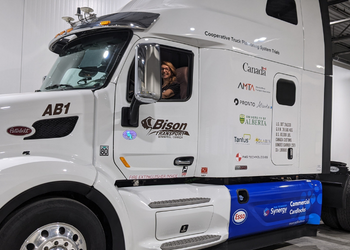A key element of the CTPS project is the study of human factors – including fatigue – and for Mike Harnett, president of Solaris Fatigue Management, her company is the link between science and applying fatigue management in the real world of their customers.
“I always say, this career chose me, I didn’t choose it,” she said.
In her first job after graduating, Harnett focused on injury prevention with a Canadian railway company after a tragic freight train incident in which 23 people were killed.
“After an intense investigation, over 300 contributing factors were identified, but the key contributors to this tragic event was a combination of poor work culture and fatigued workers,” she explained. “From there, I was sent to Washington DC and Michigan to learn about these emerging topics called Human Factors and Ergonomics, and leaders in Australia were beginning to share their initial studies in Fatigue Management. They were really in their infancy. I’ve been augmenting my education and learnings ever since.”
Harnett said AMTA reached out to Solaris in 2020 regarding submission of a bid for the CTPS project to Transport Canada.
“I welcomed the opportunity to work with the AMTA and the other partners they had lined up, knowing that we were dealing with an issue that would have a strong impact on future regulations and the promotion of a fatigue risk management system beyond hours of service rules.”



